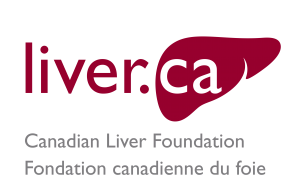Perioperative Interventions on Postoperative Outcomes in Liver Transplantation
Perioperative Interventions on Postoperative Outcomes in Liver Transplantation
It’s National Organ and Tissue Donation Awareness Week (April 24 to 30), an opportunity to encourage Canadians to have important conversations with their loved ones about their decision to donate, ensuring that each of our organ donation wishes and decisions are understood.
The Canadian Liver Foundation connected with Dr. François Carrier, an anesthesiologist and intensivist at the Centre Hospitalier de l’Université de Montréal (CHUM), clinical associate professor at the Université de Montréal, and clinical scientist and epidemiologist at the CHUM Research Center.
Dr. Carrier leads a research program on the effects of different perioperative interventions on postoperative outcomes in liver transplantation. His other research interests include transfusion medicine, cardiac surgery, major abdominal surgery, and clinical epidemiology.
All answers have been edited for length and clarity.
Can you tell us about liver transplantation?
The liver is an important organ for many body functions, but it’s often not discussed among the general population (or even in medical school). When the liver stops to function (for many reasons such as viral diseases or drinking too much alcohol, among others), people get really sick. They develop swelling, easy bruising, confusion, infections and even kidney failure. The only solution for them is to have a new liver, since there is no machine that can replace liver functions (in contrary to the kidneys for which we have dialysis). However, liver transplantation is a major surgery performed on sick patients. It is a technical challenge for surgeons and anesthesiologists, and is an operation associated with a relatively slow recovery for many patients. Indeed, the postoperative course of liver transplant recipients is really difficult for the 20-30% of the patients who experience post-surgery bleeding, a liver that doesn’t function properly, kidney failure, confusion, etc. Despite this, almost 95% of the patients celebrate their 1-year transplant anniversary and most of them will report a better quality of life than before.
Can you tell us about your research?
Liver transplantation is a challenge for the surgeons but also for the anesthesiologists who take care of bleeding, low blood pressure, kidney function, and many other considerations during the surgery. It is an area where the anesthesiologist management is still mostly based on historical culture; room for research is thus immense. Although liver transplant recipients evolve toward recovery and a better quality of life, the postoperative course is not always easy. In the days following the surgery, up to two-thirds of patients will likely have an important complication, ranging from infection and kidney failure to difficulty breathing and problems with the new liver. Most patients overcome these complications, but these they delay recovery, hospital discharge, and immediate improvement to quality of life. What we do as anesthesiologists during the surgery may reduce the occurrence of these complications. My research aims to better describe these complications and their risk factors as well as finding interventions we can do before, during or just after the surgery to reduce these complications.
What impact do you hope to make with your research?
My hope is to improve recovery by reducing complications after liver transplant surgery. The purpose of my research is to enhance recovery, reduce hospital stay, and improve the quality of life after liver transplant.
The Take-Away
We are far from developing a machine that can replace liver function; for the foreseeable future, liver transplantation will be the top cure for patients suffering liver failure. Through study and research, I hope that liver transplant can become a simpler surgery and one with faster recovery and faster quality of life improvement. To make this happen we need to understand the interventions that may improve outcomes of liver transplantation.



